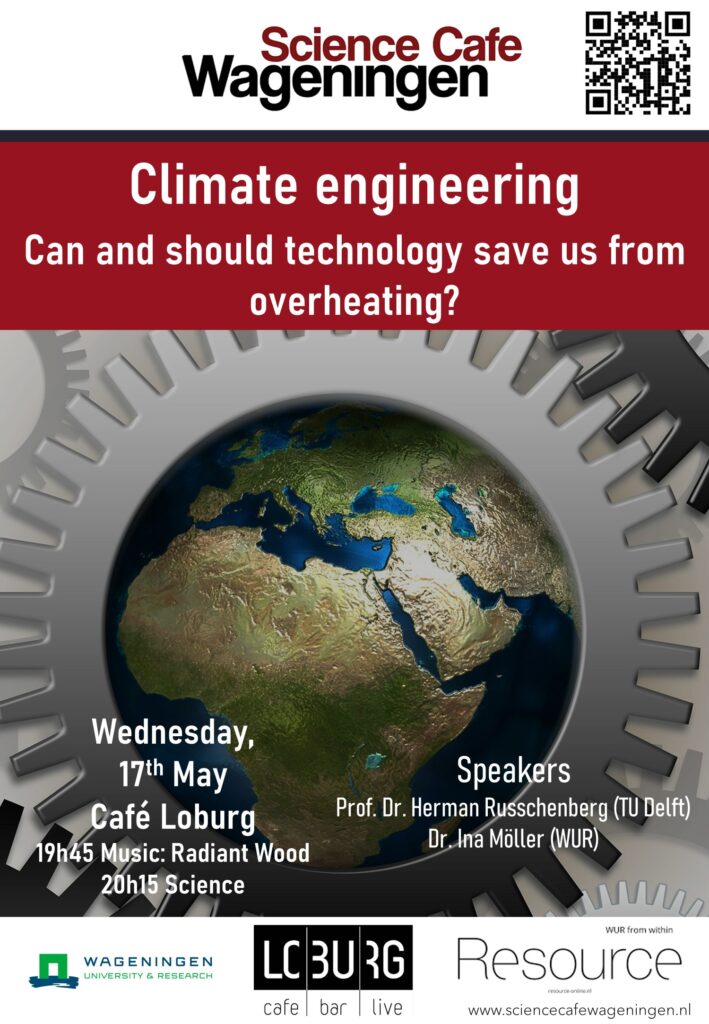Can and should technology save us from overheating?
 Wednesday May 17th
Wednesday May 17th
19:45 live music
20:15 speakers
Café Loburg
In the last Science Café of this academic year, we dive into a controversial topic at the moment: climate engineering. With new technologies, there might be effective ways to alter the climate on a planetary scale, with the ultimate goal to stabilize global temperature. Several technologies have been proposed to reduce carbon dioxide or to manage incoming solar radiation.
In this Science Café we will have two speakers coming from different angles. With Prof. Herman Russchenberg from TU Delft, we will explore climate engineering technologies. What possibilities are discussed and what might be their benefits and risks? With Dr. Ina Möller from the Environmental Policy Group at WUR, we will discuss the ethical and political concerns associated with these technologies. What societal issues do we need to consider when it comes to research and deployment? This Science Café is meant to update the audience on these technologies and debates, such that the audience can form their own informed opinion.
Prof. Dr. Ir. Herman Russchenberg (TU Delft) is a full professor in Atmospheric Remote Sensing and head of the Department of Geoscience and Remote Sensing. Since 2021 he is the TU Delft vice rector magnificus for climate action. Professor Russchenberg leads the TU Delft Climate Institute and is the scientific director of the national Ruisdael Observatory. He is one of the leading scientists of the Netherlands working on technologies for climate engineering.
Dr. Ina Möller (WUR) is an assistant professor in Climate Politics at the Environmental Policy Group of the Wageningen Centre for Sustainability Governance. Dr. Möller studies the political dynamics that shape the interface between climate change science and policy, with one of her principle research areas being the politics of climate engineering. She recently published a book titled ‘The Emergence of Geoengineering’ with Cambridge University Press, where she explores the history and prospect of these controversial technologies.
